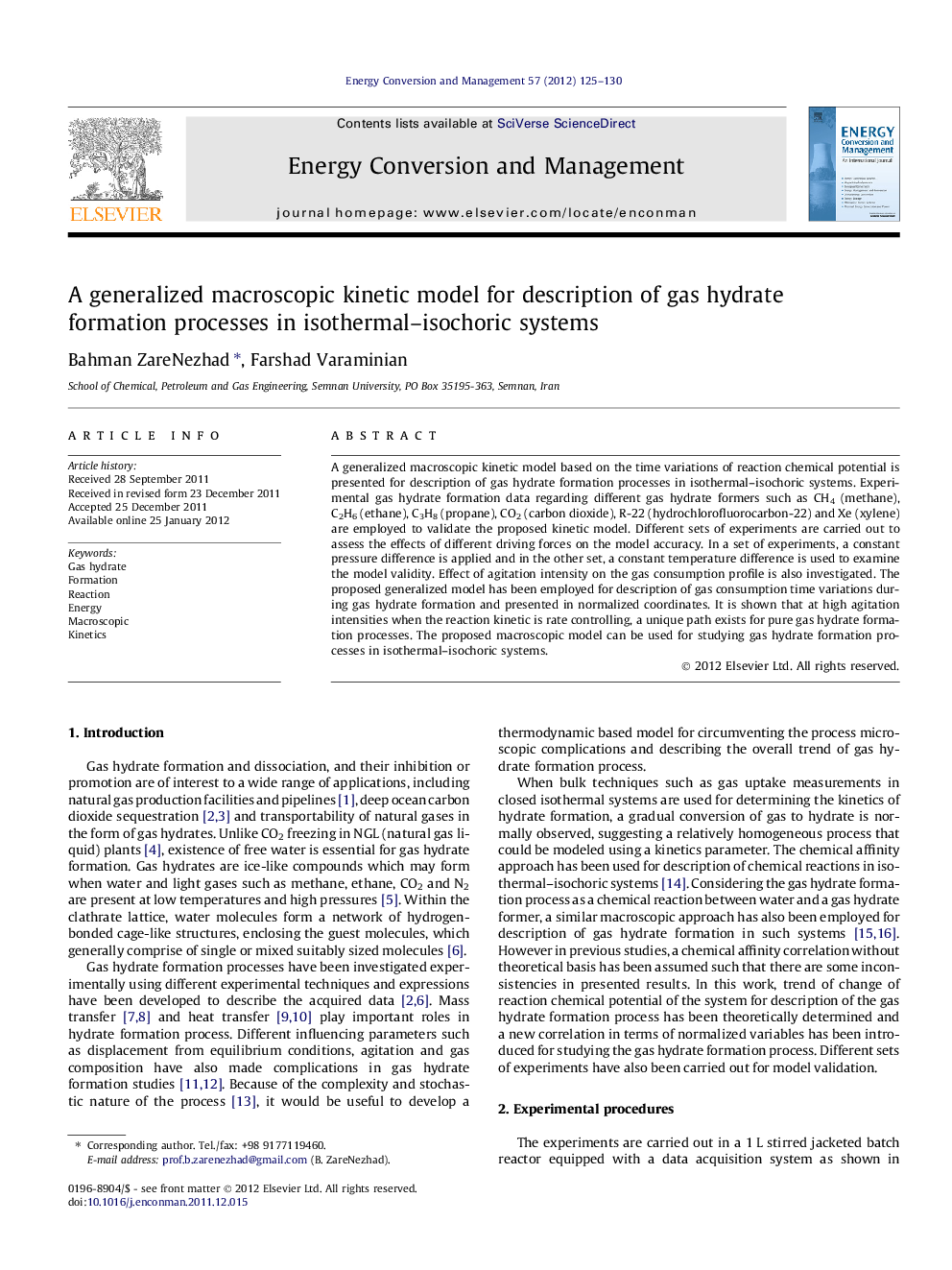| Article ID | Journal | Published Year | Pages | File Type |
|---|---|---|---|---|
| 761218 | Energy Conversion and Management | 2012 | 6 Pages |
A generalized macroscopic kinetic model based on the time variations of reaction chemical potential is presented for description of gas hydrate formation processes in isothermal–isochoric systems. Experimental gas hydrate formation data regarding different gas hydrate formers such as CH4 (methane), C2H6 (ethane), C3H8 (propane), CO2 (carbon dioxide), R-22 (hydrochlorofluorocarbon-22) and Xe (xylene) are employed to validate the proposed kinetic model. Different sets of experiments are carried out to assess the effects of different driving forces on the model accuracy. In a set of experiments, a constant pressure difference is applied and in the other set, a constant temperature difference is used to examine the model validity. Effect of agitation intensity on the gas consumption profile is also investigated. The proposed generalized model has been employed for description of gas consumption time variations during gas hydrate formation and presented in normalized coordinates. It is shown that at high agitation intensities when the reaction kinetic is rate controlling, a unique path exists for pure gas hydrate formation processes. The proposed macroscopic model can be used for studying gas hydrate formation processes in isothermal–isochoric systems.
► A new model for description of gas hydrate formation kinetics is presented. ► Gas hydrate formers such as CH4, C2H6, C3H8, Xe, CO2 and R-22 are used in experiments. ► At high impeller speeds, a unique path of hydrate formation exists for all pure gases. ► The model can be used for design of industrial gas hydrate energy converters.
